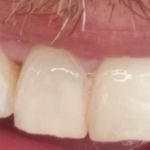
1. Understanding the Impact of Poor Oral Hygiene
Many people wonder, can you fix bad oral hygiene after years of neglect? The truth is that while the damage can sometimes be significant, consistent care and professional guidance can transform your oral health. Poor hygiene can lead to gum disease, tooth decay, bad breath, and even systemic health problems. The good news is that your mouth has remarkable resilience when given the right care.
2. Early Signs That Should Not Be Ignored
2.1 Persistent Bad Breath
One of the earliest warning signs is halitosis, commonly known as bad breath. It often points to plaque buildup, bacteria growth, or untreated cavities. Ignoring this symptom can lead to deeper oral problems.
2.2 Bleeding Gums
If you notice bleeding while brushing or flossing, it’s a signal of gum inflammation. Left untreated, this can progress to gingivitis or even periodontitis, which can damage supporting bone structures.
2.3 Tooth Sensitivity
Sensitivity to hot or cold foods often reflects enamel erosion or receding gums. Both can be reversed or managed if addressed promptly.
3. Practical Steps to Fix Bad Oral Hygiene
3.1 Establishing Consistent Habits
Brushing twice daily with fluoride toothpaste and flossing once a day remain the foundation of recovery. These habits prevent bacteria from settling into hard-to-reach areas.
3.2 Using Antimicrobial Mouthwash
Adding an antibacterial rinse reduces plaque and combats gum disease. Over time, it helps restore a cleaner, fresher mouth environment.
3.3 Professional Cleaning and Scaling
Dentists can remove tartar buildup that brushing cannot. Deep cleaning sessions often mark the turning point for patients struggling with chronic hygiene issues.
4. Real Stories of Transformation
Consider the story of a young professional in California who ignored dental visits for nearly a decade. After experiencing severe gum pain, he finally sought help. Through consistent cleanings, at-home care, and lifestyle changes, he managed to reverse gum inflammation and restore his smile. These personal journeys remind us that even severe oral hygiene issues can be turned around with determination and professional support.
5. The Role of Diet and Lifestyle
5.1 Reducing Sugar Intake
Sugary drinks and snacks fuel the bacteria that cause cavities. Replacing these with water, fruits, and vegetables supports enamel and gum health.
5.2 Avoiding Tobacco and Excessive Alcohol
Both habits accelerate gum disease and increase oral cancer risks. Quitting these can drastically improve the mouth’s healing capacity.
5.3 Hydration and Saliva Production
Staying hydrated boosts saliva flow, which naturally protects teeth by neutralizing acids and washing away food particles.
6. Long-Term Benefits of Fixing Bad Oral Hygiene
Addressing poor habits doesn’t just improve your smile; it can also prevent heart disease, diabetes complications, and other systemic conditions linked to oral bacteria. Restoring dental health contributes to overall confidence, better nutrition, and a higher quality of life.
7. Expert Support and Trusted Resources
So, can you fix bad oral hygiene? Absolutely—with consistent care, dietary changes, and the support of dental professionals. For expert advice, routine checkups, and personalized recommendations, Family Dentistry Online offers resources and services to help every patient take the right steps toward a healthier smile.







 Maui Whitening Orlando4.0 (32 review)
Maui Whitening Orlando4.0 (32 review) Bloomington Southside Dental Care3.0 (26 review)
Bloomington Southside Dental Care3.0 (26 review) Christiana Dental Center4.0 (650 review)
Christiana Dental Center4.0 (650 review) Carolina Dental Arts - New Bern Ave4.0 (152 review)
Carolina Dental Arts - New Bern Ave4.0 (152 review) Equitas Health Short North Medical Center3.0 (96 review)
Equitas Health Short North Medical Center3.0 (96 review) Prosthodontics of Madison - Kendra Schaefer, DMD & Christine Roenitz, DMD4.0 (25 review)
Prosthodontics of Madison - Kendra Schaefer, DMD & Christine Roenitz, DMD4.0 (25 review) The Importance of Oral Health Education During Pregnancy for a Healthy Pregnancy
The Importance of Oral Health Education During Pregnancy for a Healthy Pregnancy Best Tips for Brushing Your Teeth Properly for Healthy Gums: Essential Techniques for Oral Health
Best Tips for Brushing Your Teeth Properly for Healthy Gums: Essential Techniques for Oral Health Why Skipping Dental Checkups Can Lead to Bigger Oral Health Problems
Why Skipping Dental Checkups Can Lead to Bigger Oral Health Problems Advantages of Porcelain Dental Restorations
Advantages of Porcelain Dental Restorations How Can Diabetes Cause Tooth and Gum Problems? Preventing and Managing Oral Health Issues
How Can Diabetes Cause Tooth and Gum Problems? Preventing and Managing Oral Health Issues Healthy Habits for Promoting Good Oral Health and Hygiene: Tips for a Healthy Smile
Healthy Habits for Promoting Good Oral Health and Hygiene: Tips for a Healthy Smile